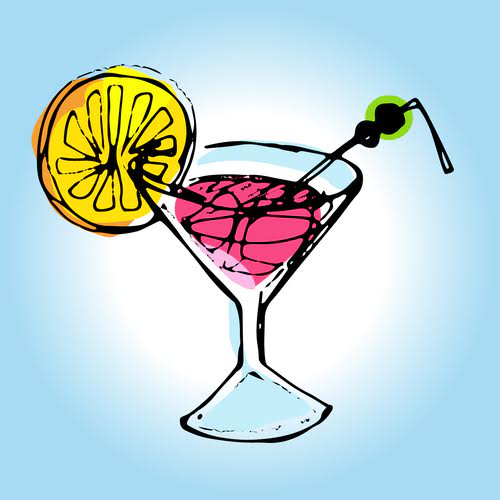Alcohol acts as a diuretic, meaning it increases urine production and subsequently leads to fluid loss from the body. When you consume alcohol, it inhibits the production of an antidiuretic hormone called vasopressin. This hormone typically signals the kidneys to reabsorb water rather than excreting it as urine. As a result, alcohol causes increased urine output, which can lead to dehydration. Alcohol consumption can have detrimental effects on your skin, and one of the https://ted.plock.pl/2023/06/29/this-is-the-healthiest-alcohol-to-drink/ primary ways it does so is through dehydration.
Six: alcohol worsens acne breakouts
The skin and sclera of the eyes often turn yellow in patients with alcoholic liver disease. The colour, known as jaundice, is due to bilirubin, a product broken down from haem derived from red blood cells. The metabolism of bilirubin is impaired in acute and chronic liver disease. One of the earliest signs of alcohol abuse is a persistently red face due to enlarged blood vessels (telangiectasia). This appears because regulation of vascular control in the brain fails with sustained alcohol intake.
- Changes to the skin may be more serious and last longer if a person regularly consumes alcohol.
- Yes, alcohol can cause face swelling due to inflammation, fluid retention, and poor circulation.
- But our drinking habits may be responsible for undercutting the good these products can do for our skin.
- Heavy drinking can make you more likely to get cellulitis, a bacterial skin infection that usually affects your lower legs.
‘Cocktails are usually packed with sugar, additives does alcohol come out of your pores and colourings, which can trigger spots and impact your complexion (when consumed in excess),’ shares Phillips. Urticaria (hives) may occur within minutes to hours of drinking alcohol and is sometimes due to allergic reaction. Flushing and overheating after drinking alcohol may also indicate cholinergic urticaria.
Four: alcohol damages the skin barrier
Try not to let a good time and a long night get in the way of your evening regime. The festive season is in full swing, which means our diaries are quickly filling up with Christmas parties and year-end celebrations. While for most this means a steady flow of cocktails and wine, for me, it’s all about dancing until last call fuelled by virgin margaritas and faux bubbly.
Signs of long-term alcohol face damage:

This is because alcohol reduces the concentration of antioxidants in the skin (10). When you stop drinking alcohol, you’ll start seeing improvements almost immediately. Alcohol misuse has been linked to psoriasis, a disease that causes itchy, dry and scaly patches on the skin.
- But if you’re the kinda dude who wants to look their best at all-times, you should probably hold off on that second or third (or fourth) pint.
- Alcohol can lead to dehydration, inflammation, and premature aging.
- Another impact that alcoholism has on the skin is that individuals who drink heavily are more prone to infections.
- They can make it harder for your body to produce collagen, a key component of healthy skin cycles, and for your skin to heal after any kind of trauma.
Does Alcohol Cause Acne?
This can lead to hair alcoholism treatment becoming brittle and prone to damage, as well as hair loss. At Renaissance Recovery our goal is to provide evidence-based treatment to as many individuals as possible. Give us a call today to verify your insurance coverage or to learn more about paying for addiction treatment.
Dehydration and Skin Health
And although your favorite champagne may taste light, it likely contains a significant amount of sugar. We’re exposed to free radicals every day through food, pollution, smoke, sunlight, and yes, alcohol. According to research, alcohol not only releases a flood of free radicals into the body, it also impairs your antioxidant defense at the same time. Inflammation also impacts the well-being of your arteries and organs overall, which can have a domino effect on your health—once again including your skin. Believe it or not, sleeping with two pillows in bed slightly propped up is one of the best ways to minimise eye and face puffiness.
Increased appetite and poor dietary choices
- This is because of a mutation in acetaldehyde dehydrogenase (ALDH2), the enzyme that converts acetaldehyde to acetate.
- There’s no one-size-fits-all answer, but more than 7 drinks per week (for women) or 14 (for men) is considered excessive by health standards—and it’s enough to cause noticeable skin changes.
- Alcohol may intensify itching and redness in people with eczema, making symptoms harder to control.
- This often results in a bloated or puffy-looking face, particularly around the eyes and cheeks.
Patients who make this change often notice an improvement in their skin condition over time. In a study published in 2018, researchers found that heavy drinkers had a higher risk of developing autoimmune diseases, including psoriasis. This connection shows how important it is to consider alcohol’s effects on overall health.
Additionally, it can dehydrate the skin, negating the benefits of the facial. By following these tips, you can help minimise the damage that alcohol does to your skin and achieve a healthy, youthful complexion. Short term effects are usually temporary and will subside once the alcohol is metabolized by the body. Where as Long term effects can be more difficult to reverse and may require professional treatment. Yes—alcohol is a major trigger for both conditions and often causes flare-ups, redness, and itching. Stick to the 1–2 drink range, drink slowly, and always pair alcohol with food.

Eyes
Along with liver, breast, and pancreatic cancer, alcohol abuse also increases the risk of skin cancers such as basal cell carcinoma, squamous cell carcinoma, and melanoma. Whether you drank a little or a lot, alcohol can lead to dryness, redness, inflammation and breakouts. We asked dermatologist Sandra Lee, MD (aka Dr. Pimple Popper) to explain. Alcohol can dehydrate the skin, leading to dryness and dullness, and it may also cause inflammation and redness, disrupting the skin’s natural balance. Yes, although the alcohol in the drink will still have negative effects on the skin. Resveratrol (present in wine) is good for the skin, for example, but the alcohol content still causes the same damage as the alcohol in beer or spirits.
Additionally, alcohol affects the balance of electrolytes in the body, such as sodium and potassium. This imbalance further contributes to dehydration as these electrolytes play a vital role in maintaining proper hydration levels. Yellowing of the skin or eyes may be a sign of liver strain or early liver disease. This is often accompanied by dark under-eyes, itching, or easy bruising. Beer can cause bloating and contains histamines that can trigger rashes. Wine, especially red, is high in sulfites and may worsen rosacea.
Leave a Reply